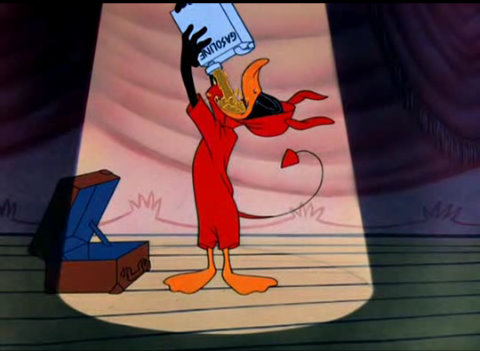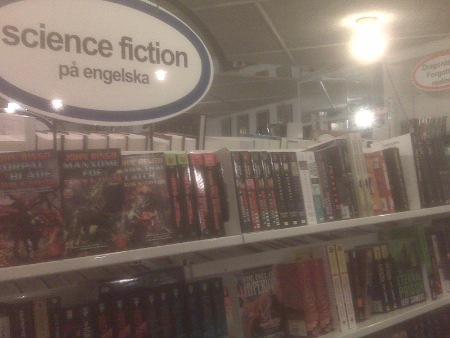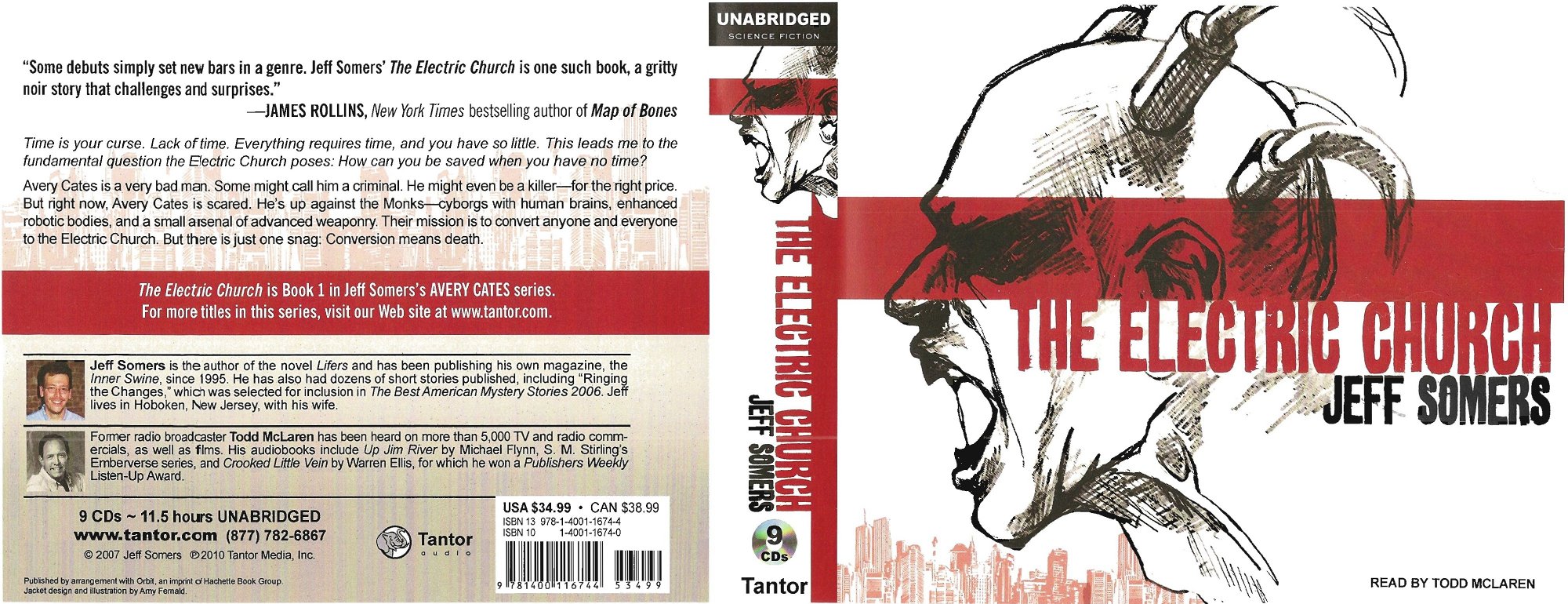Continuing in my apparently ongoing series of posts wherein Jeff Watches Lame Recent Sci-Fi Movies and Complains About the Writing, I watched the truly, awesomely terrible movie Gamer starring Gerard Butler, who talks like he’s got golfballs in his mouth and obviously needs a new agent. Not many folks bothered to catch this one in the theaters, which speaks well of humanity as a whole, but I was mildly intrigued. This was definitely one of those movies that I knew would not be good but hoped to find some intriguing kernel of delicious smarts somewhere under the bloated Hollywood bullshit. I was sadly disappointed.
Well, okay, there was one moment of demented genius, but we’ll get to that.
The basic plot: In the future, the prison system is on the brink of collapse as there are so many criminals the USA can’t find the money to support them. Enter this guy (I do not have sufficient respect for this movie to remember character names) who has invented nanotechnology that allows people to be remote-controlled via the Internet. Basically, they get loaded with nanobytes that mutate their brain cells and then accept wireless commands. He first creates a “game” called Society which is basically Second Life except the avatars are real live people who are paid to be controlled, and where folks remotely act out their fantasies. Then he creates Slayers, where he takes the entire US prison system off the hands of the government and death-row criminals can volunteer to play a First-Person Shooter type game as the actual avatars, or as unarmed “collateral damage” type people programmed to just wander aimlessly while everyone is shooting. A Slayer gets freed from prison if he/she survives 30 games, a collateral-damage person gets freed if they survive one. People log in remotely, select their “avatar”, and get to kill real-live people.
Naturally, there are secrets. Butler plays the most popular Slayer, who is ‘owned’ by a rich teenager. He’s been wrongly imprisoned, of course, and his wife has lost custody of their daughter and been forced to work in Society as, basically, a whore. Players select her as an avatar, dress her up any way they like, then prance her around Society until some other avatar decides to fuck her. Very sad and dystopian. Butler has secret knowledge, of course, which he makes absolutely no reference to throughout the film until other characters explain it to him, meaning his character is either the Stupidest Man Alive or the nanotech causes some severe brain damage, take your pick.
Anyway, that’s all you need of the plot. This entire movie is an example of Buzz Word Script Writing. BWSW is when a story is constructed from poorly-understood terms or phenomena the screenwriter doesn’t know much about; they watch a few YouTube vids, read a few Wikipedia articles, make a list of buzz words, and then tell whatever crapass story they come up with, sure to sprinkle the buzz words everywhere to give it a sheen of currency. Someone heard vaguely about Second Life and First-Person Shooters, and over some good drugs one night they had one of those “Dude, what if the people in Second Life were, like, real fucking people.” and there was a moment of stunned silence. Then everyone began snorting coke and drinking tequila, and three hours later there was a script.
I swear to you: That’s how these scripts get written.
Naturally, of course, they don’t really understand the appeal of either, and they are so far removed from the user bases of either that they assume, stupidly, that the people who play FPS games or who get involved with stuff like Second Life are assholes. Basically, they assume the potential audience for their movie are assholes and proceed to insult them through the course of the entire film. The FPS gamers are represented by an obnoxious teenaged kid of privilege. The Society players are represented by a grossly fat man in a motorized chair who is your typical Hollywood Gross Fat Guy (HGFG), which means he apparently doesn’t wash and has no moral basement whatsoever, because Hollywood thinks fat people are not simply unhealthy or unlucky, but rather EVIL. That’s how the film’s producers/writers see y’all: You play with computers, therefore you are either vapid and shallow, or gross and fat and unloved by society.
Cheers.
The movie is made of fail, but there is one part of the story that is really badly handled from a writing standpoint: The secondary villain. The hero of the piece is, naturally, a Badass. He’s survived dozens of these games because he’s ex-military and of course has a noble goal (getting out, clearing his name, regaining his family) so of course he’s the toughest guy in the room (and inexplicably world-famous; this movie makes the classic mistake of trying to convince us that the Slayers game and its main characters are HUGE worldwide celebrities, while showing us a game that is about as interesting and exciting as watching Gerard Butler swallow those golf balls in his mouth). That’s fine. The main villain is the exact opposite: Nerdy, decadent, rich and powerful financially and politically but weak physically. That’s fine, too, and makes for a classic, if slightly tired, combination. About halfway through the story they introduce a secondary villain who the main villain plants in prison to finally kill the hero, and he’s introduced on a video screen as a sweating, trembling black man, all bulging muscles and barely-contained anger. They fill the screen with his ominous, hate-filled face and linger on his muscular, aggressive body. One of his first acts in prison is to murder someone just for the hell of it and then taunt the hero about how he’s going to kill him and then rape his family.
And then: The secondary villain does absolutely nothing worth nothing. He’s the worst villain ever in the history of bad movies. He just fails and fails and fails, and very quickly is reduced to a joke. If I thought this was perhaps the whole point of his character, that would have been OK, I suppose, but they clearly introduce him as a genuine menace, and then couldn’t figure out how to have him be actually menacing without ruining their shaky, barely-there plot, forcing them to, you know, think about plot mechanics and such. So they give this guy a huge buildup, make you think the hero’s in for it now, and then … nothing.
Finally, we do have one bright moment. The main villain, as you recall, had mind-controlling nanotech injected into all these people, and when the hero arrives at his mansion for some revenge – worst plan ever, as HE IS FILLED WITH MIND-CONTROLLING NANOTECH – ahem, he encounters the villain and about a dozen other death-row inmates. Instead of simply launching his puppets at the hero (OR, SAY, SIMPLY USING THE MIND-CONTROLLIN NANOTECH TO FORCE THE HERO TO KILL HIMSELF) the villain begins a song and dance number with the inmates as his mind-controlled backup dancers. I kid you not. A little silly, yes, but also kind of brilliant: He’s a rich genius bent on taking over the world, and for months in the story he’s had complete mindfuck power over all these people. It makes sense that he’s batshit, and cruel. It’s a fun scene, like finding a cheeseburger still in the wrapper in a dumpster outside a Johnny Rockets.
Whew. I’m exhausted.



